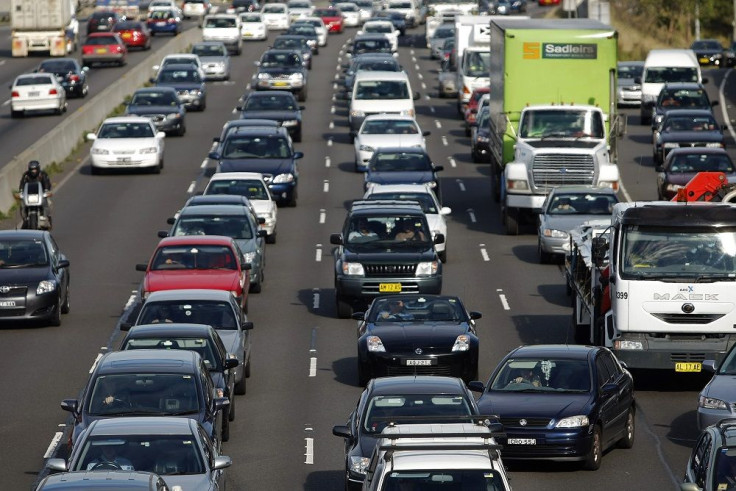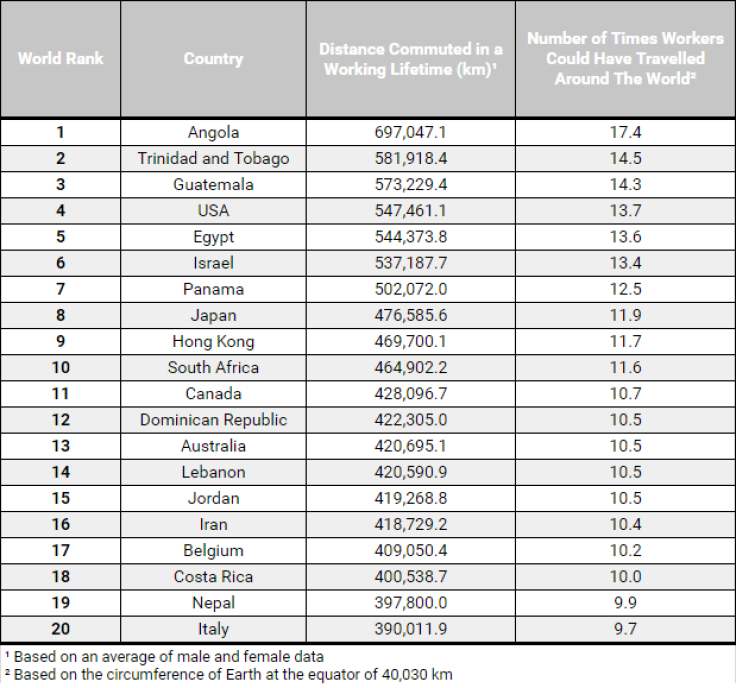With an estimated working lifetime commute of 420,695 km, Australians could have travelled 10.5 times around the world

A study by Global Positioning Specialists (GPS), released in June, says that Sydney residents lost almost six percent of their average-after-tax wages, or about US$3,308 (A$4,500), sitting in traffic because of the rush hour. A new report from GPS, released on Wednesday, listed the top 20 worst times by country for sitting in traffic.
Were it not for the gridlock, the residents could have traveled several times around the world based on an estimate of their distance commuted in a working lifetime. The report says Australians could have traveled 10.5 times around the world, based on estimated 420,695.1 kilometres commuted in a working lifetime, prolonged by traffic.
The number of times circling the globe is based on the Earth’s circumference of 40,030 kilometres. Using this data and the estimates of distance commuted in a lifetime, Australians were only 13th worse. The top spot was occupied by Angola where distance commuted was 697,047.1 kilometres and travel around the world computed at 17.4 times.
The top 20 list is an interesting mix of South and Latin American nations (5), Asian (3), North American (2), African (2), Middle Eastern (5), European (2) and Oceania (1) nations. The study used data from 110 countries.

Lucile Michaut, head of GPS, explains, “Our findings tap into a very real grudge of the commuter, which is thinking of better ways you could have spent your time. So many of us spend hours each week travelling, yet our destination is depressingly familiar and unexciting; the office. While most of us could not afford a round the world trip instead of working, it does remind us all that there is more to life than the daily grind and perhaps every now and then we should take time out to travel somewhere a little different.”
Meanwhile, NewDaily reports that Industry Super Australia says it has the money, expertise and appetite for investing to help fix the gridlock problem in the country. The fund is expected to invest between $8 billion and $16 billion in infrastructure, including roads by 2020.
A 2015 report by the Bureau of Infrastructure, Transport and Regional Economics says Australians spend an average of 85 minutes daily getting to work. The cost of traffic congestion to the country’s economy is $16 billion a year based on time lost, pollution cost and car operating costs.
VIDEO: Sydney gridlock
Source: Channel Ten






